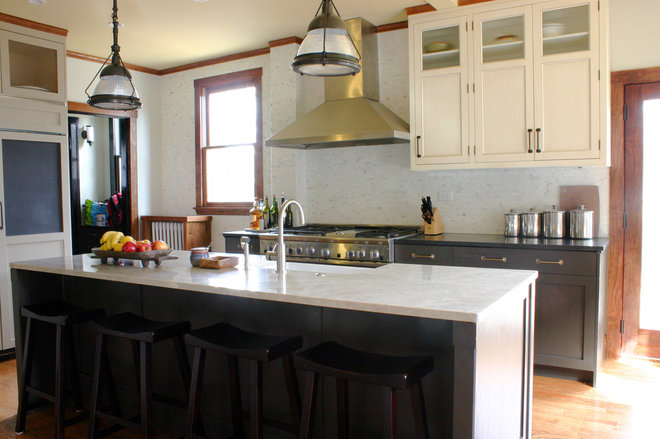How to Build Your Housekeeping Muscle
"The way I look at it is, I'm just really good at saving money," the lender said, and I was astonished. In that moment I realized I judged the way a person handles money as a character issue rather than a skill, as this man was suggesting. This may seem to be a subtle distinction, but it's actually profound. When we define things in terms of character, it's not about what we can or cannot do, but who we are. It's not whether or not I'm any good with money but if I'm a good person, period. I don't think I'm the only one who does this, and I'd assert that we use this same standard to judge physical fitness and personal organization as well.
When we consider things in terms of natural ability and inclination, it's easier to be dispassionate. We don't get so tied up in our feelings of moral inferiority and are less likely to despair. This may sound like making excuses, but it's actually being ruthlessly honest. "Why can't I do this?" you may wonder. "What's wrong with me?" You're just not very good at it, is the simple answer. The good news is, though, you can get better.
If you have been struggling to get your house in order, you may know you're not very good at cleaning and organization. It doesn't matter if you struggle because you have ADHD or you come from a long line of hoarders. It is what it is. The why isn't as important as what you can do about it now. Following are a few suggestions to help you build the muscle you need.
1. Acknowledge the difficulty. This is obvious. I mean, you're reading this post, so odds are that you're aware you aren't a natural at this whole cleaning and organizing thing. You know it's not easy! Still, take a second and tell yourself, "This is hard for me. I'm not good at this."
I know this sounds grim, but we're not going to stay here. Figure out whatever is true for you and just know it without shame or excuses. It's actually a relief to just be honest. Then tell yourself, "And I can improve. I can get stronger. I can do something about this." The statements in the previous paragraph are the exhalation, and these are taking a new breath.
2. Make a commitment. To begin you need to choose one or two small habits to establish, the emphasis being on small. Take some time to look around your house and decide where you want to start. Notice what you are already in the habit of doing and maybe add on there. For example, I rarely go to bed without having the kitchen all cleaned up. It was once a terrible chore, but the more I made myself do it, the easier it became. Now I try to do it right after dinner with the family's help, making it even easier. Recently I've added sweeping the kitchen floors to my nightly routine. Many nights there isn't much, but it takes only a minute, and now it never gets out of hand.
If you're just starting, think of one or two simple things you can do. Put away your clothes instead of dropping them on the floor? Make the bed? Wipe off your kitchen counters? Straighten up the living room? You choose.
Those of us who are Not Naturally Organized tend to be all or nothing in our home-keeping endeavors. We'll let areas go for weeks (months! years!) until we can't take it anymore and go all-out on a cleaning spree. When we're finished with a room, it could pass the white-glove test — not that anyone is administering one. Many of us swing between perfection and squalor, an exhausting and demoralizing routine.
So pick a few small things to do every single day. Right now I'm working on wiping down the master bathroom sinks. Some days I do it in the morning, others I don't hit them until bedtime, and some days I forget altogether, but I get to them the next day and they stay tidy.
To support my sink-cleaning habit, I bought a container of wipes that I set on the table between our sinks. I thought twice before adding a disposable item to my routine and decided it's temporarily acceptable. When it's a habit, I can use a rag and cleanser, but right now I need the one step between thought and action, with no more steps, like: "Put the rag in the laundry. Clean. Fold. Refill."
When you're establishing a habit, try to keep things as simple as you can. It may not always be necessary, but cut yourself a break for now.
5. Keep going. Once you have established a habit, decide what you want to do next. Again, keep it manageable. Slow and steady wins the race and makes positive changes permanent ones. In my house the kitchen routine is established and our living room is never more than a couple minutes from being tidy, so I'm working on keeping our bathrooms perpetually clean. Next up are the mudroom and the north end of my long harvest table.
6. Celebrate what is. It's important to recognize the progress you've made. Pay attention and notice when you're beginning to do things without thinking, when it's no big deal. Simply acknowledging change and growth will give you energy to continue in the habits you've made and to continue making new ones



